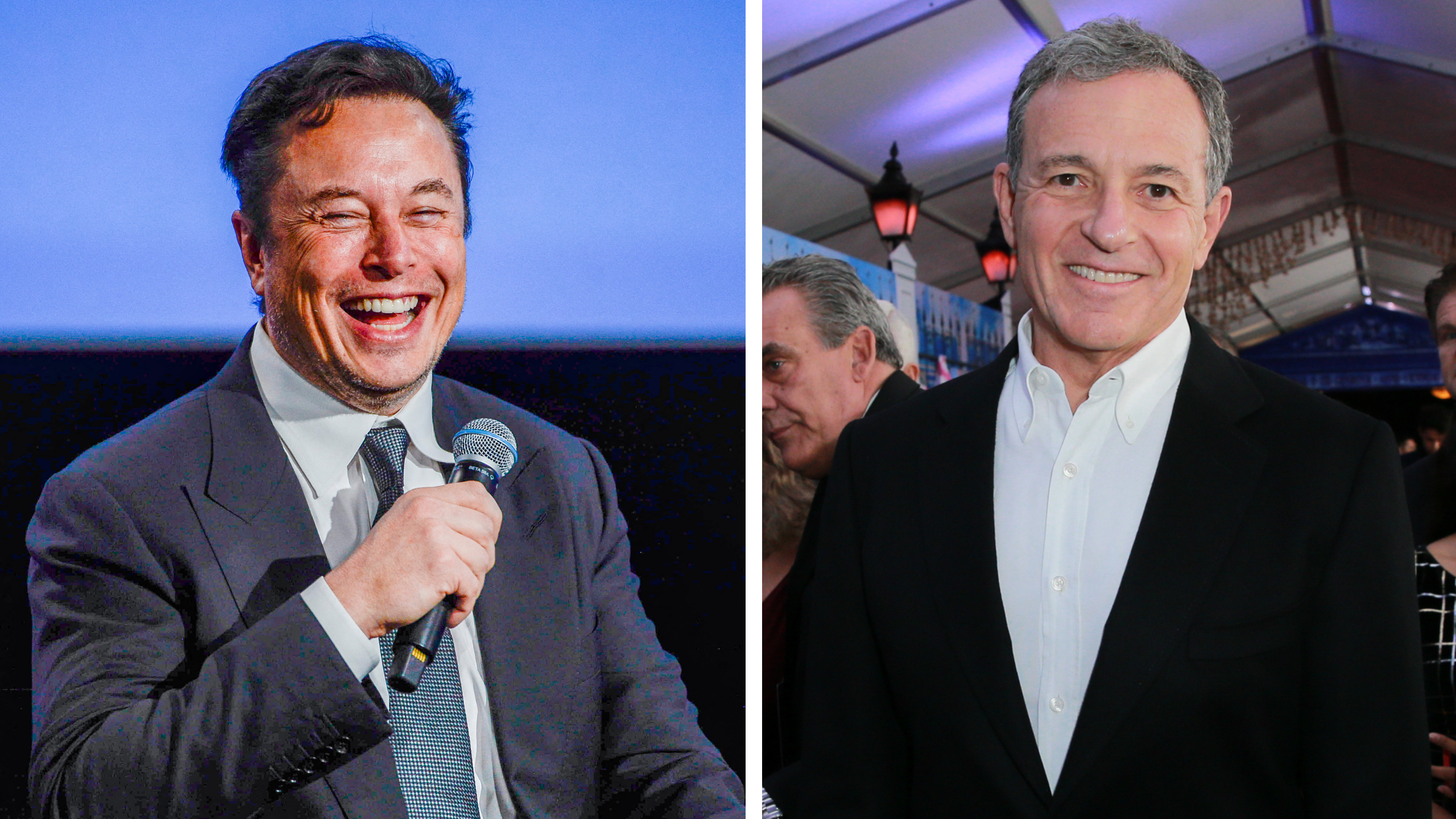Disney’s Bob Iger Reveals Company Was Close to Buying Twitter But Concern Over Bots Held Them Back

Photo composite – Bob Iger (Photo by Rich Fury/Getty Images) // Elon Musk (Photo by CARINA JOHANSEN/NTB/AFP via Getty Images)
Back in 2016, Disney CEO Bob Iger pitched the idea that the company should buy Twitter as a means of bigger distribution for the company, but the idea was quickly abandoned.
Iger appeared at the Code Conference earlier this week where he gave a more detailed explanation as to why the proposal was axed in 2016.
He cited many of the same concerns that Tesla CEO, Elon Musk had, during his attempt to purchase the company earlier this year… bots.
We were intent on going into the streaming business. We needed a technology solution. We have all this great IP. We weren’t a technology company. How do we get that IP to consumers around the world? … And we were kicking tires left and right. We thought about developing ourselves. Five years, $500 million. It wasn’t the money, it was the time, because the world was changing fast. And at the same time, we heard that Twitter was contemplating a sale.
We enter the process immediately, looking at Twitter as the solution: a global distribution platform. It was viewed as sort of a social network. We were viewing it as something completely different. We could put news, sports, entertainment, reach the world. And frankly, it would have been a phenomenal solution, distribution-wise.
Iger says he contemplated the decision and was worried about the distractions that would emerge from the acquisition.
Then, after we sold the whole concept to the Disney board and the Twitter board, and we’re really ready to execute — the negotiation was just about done — I went home, contemplated it for a weekend, and thought, ‘I’m not looking at this as carefully as I need to look at it.’ Yes, it’s a great solution from a distribution perspective. But it would come with so many other challenges and complexities that as a manager of a great global brand, I was not prepared to take on a major distraction and having to manage circumstances that weren’t even close to anything that we had faced before.
Interestingly enough, because I read the news these days, we did look very carefully at all of the Twitter users — I guess they’re called users? — and we at that point estimated with some of Twitter’s help that a substantial portion — not a majority — were not real.
The deal fell through after the 2016 election. Iger credited reluctance in part to the potential for hate to dominate the platform.
Then you have to look, of course, at all the hate speech and potential to do as much harm as good. We’re in the business of manufacturing fun at Disney — of doing nothing but good, even though there are others today that criticize Disney for the opposite, which is wrong. This was just something that we were not ready to take on and I was not ready to take on as the CEO of a company and I thought it would have been irresponsible.
—






